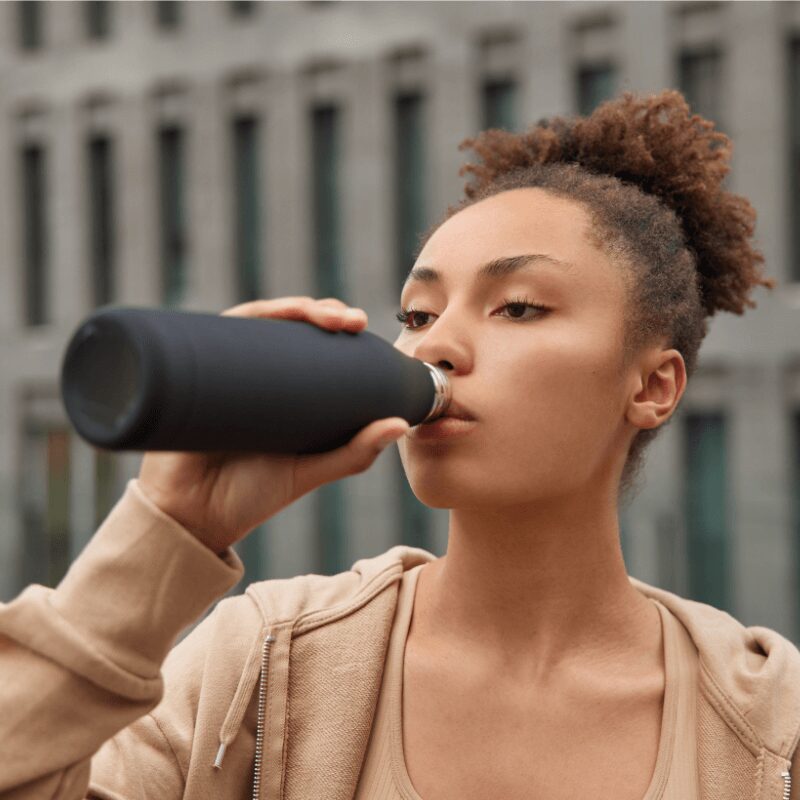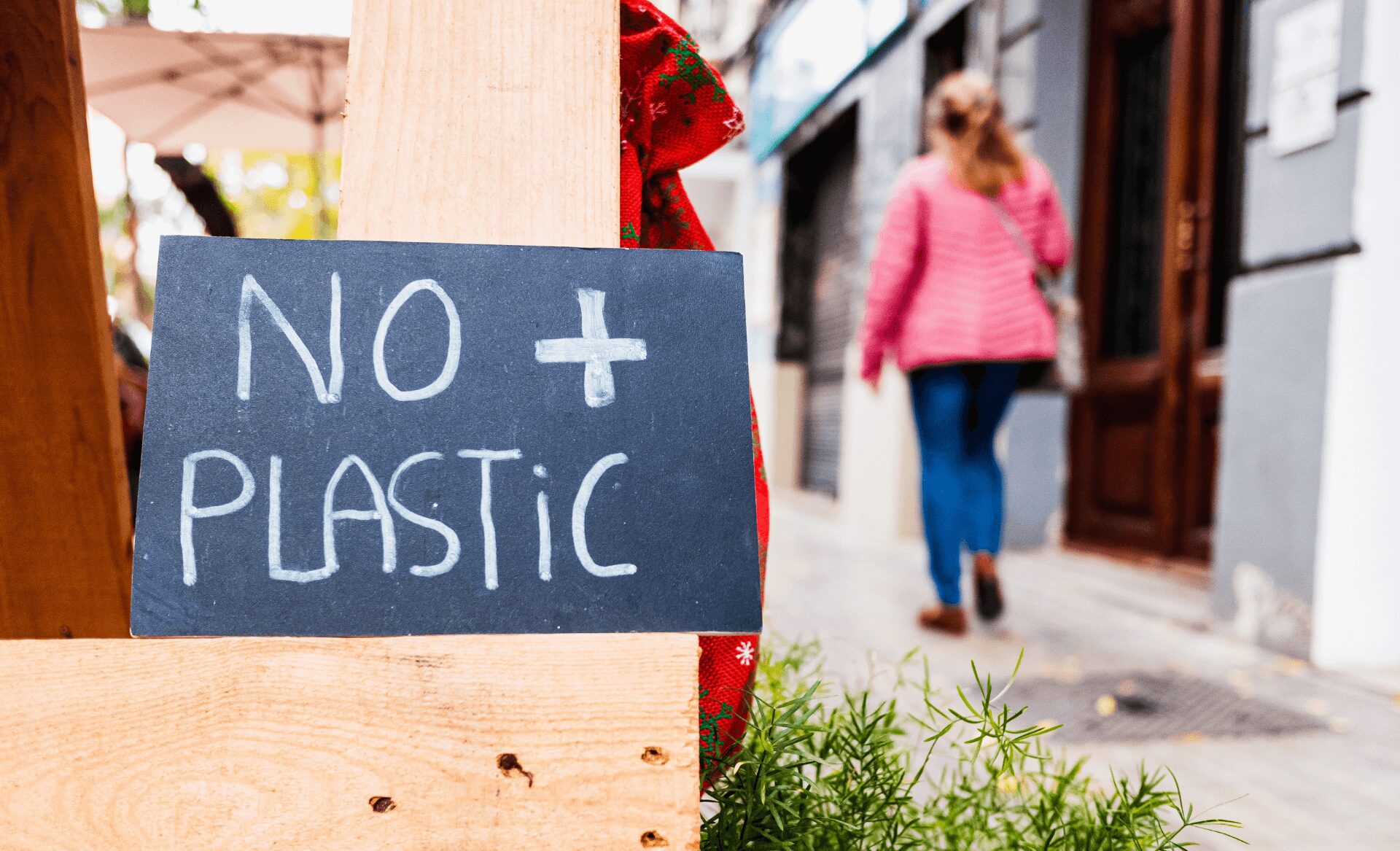It’s 2025, and you’ve probably seen at least one sign this week that says, “No Plastic Straws,” or maybe your city passed a law banning plastic bags a while back, and everyone’s carrying canvas totes with pride. It sounds great in theory. But then you walk two aisles over at the grocery store and find produce shrink-wrapped in plastic, drinks in disposable bottles, and shelves packed with single-use everything.
So, do plastic bans actually work? Or are we just feeling good while the problem keeps piling up?
At Bottleless Nation, we believe in reducing plastic where it matters, particularly in the bottled water industry. We’re all for policy changes and awareness campaigns, but we’re also realists. Let’s break down the impact of plastic bans, where they’re effective, where they fall flat, and how you can take action that actually makes a difference.
What Plastic Bans Are Trying to Solve
Plastic bans are typically aimed at single-use items, such as bags, straws, utensils, and bottles—items that comprise a significant portion of the plastic pollution in oceans, landfills, and waterways. According to the UN, we produce over 400 million tons of plastic waste every year, and nearly half of that is single-use.
These bans are a response to growing public pressure and environmental data that’s hard to ignore: plastic is everywhere, and it’s not going away anytime soon. So the idea is simple: Cut off the supply to reduce the waste.
But that’s a lot easier said than done.
Where Plastic Bans Are Working
When implemented correctly, plastic bans can make a significant difference, especially when combined with public education and access to alternatives.
Countries like Rwanda, Kenya, and Chile have implemented strong national bans on plastic bags, and the results are visible. Cleaner streets, fewer clogged drains, and reductions in local plastic waste have been reported.
In the U.S., places like California and Oregon have seen measurable drops in plastic bag use and litter after enacting bans and charging fees for alternatives.
In these cases, it appears the bans work because they’re:
- Well-enforced
- Supported by affordable, reusable options
- Receive the backing of the public
- Paired with education that explains the “why” behind the rule
When all four of those pieces are in place, change doesn’t just happen—it sticks.
Where Plastic Bans Fall Short
Now here’s the flip side: Not all plastic bans are created equal.
In some cities, bans are more symbolic than systemic. For example, a ban on plastic straws might sound impactful, but straws only account for about 0.03% of ocean plastic waste. That’s not to say they shouldn’t be addressed, but banning only straws while leaving bottled water untouched feels a little like rearranging deck chairs on a sinking ship.
Another issue? Loopholes and half-measures. Some local and state bans allow “compostable” or “biodegradable” plastics that still behave like regular plastic in landfills. Others are so lightly enforced that compliance becomes optional.
And, as we’re sure you’ve experienced, when you don’t have accessible, affordable alternatives, it’s easy to either double down on plastic use or swap one problem for another (like replacing single-use plastic with single-use paper or thicker plastic that’s even harder to recycle).
So yes, plastic bans can work. But only if they’re bold enough, consistent enough, and part of a bigger shift in how we think about consumption.
The Bottled Water Problem No One Talks About Enough
One of the biggest plastic offenders that often flies under the radar of local bans? Bottled water.
Globally, we go through more than 1 million plastic bottles every minute, and most of them are used once and tossed. Many never get recycled. And even when they do, plastic can only be recycled a few times before its quality degrades. Eventually, it all ends up somewhere: landfills, oceans, or our bodies in the form of microplastics.

This is where Bottleless Nation focuses its energy, because cutting out bottled water is one of the easiest and most impactful steps an individual or business can take to reduce plastic waste.
And here’s the best part: you don’t need a ban to do it.
What You Can Do That Makes a Bigger Impact Than a Ban
Laws and policies help, but real change begins with the choices you make every day. So, how can you stop waiting for local and state lawmakers to implement change and start making a difference? We have a few suggestions…
1. Ditch Bottled Water—for Good
Switch to a bottleless water system at home or in the office. These systems filter water on demand, eliminating the need for plastic bottles or heavy 5-gallon jugs. It’s cleaner, safer, and far more sustainable. Plus, it saves money over time.
2. Support Businesses That Walk the Talk
Where you spend your dollars matters. Support cafés, offices, gyms, and restaurants that have gone bottleless and prioritize plastic-free practices. If you’re not sure about the policy of your favorite spot, just ask! Most places that are in tune with their customers know this is a priority and aren’t afraid to be transparent. If they’re not, then you can make a quiet change to support a business that aligns more closely with your mission.
3. Be a Voice for Smarter Change
Call out the “greenwashing” when you see it. Encourage stronger bans that target the real offenders—such as plastic bottles—and push for infrastructure that makes sustainable choices the easy choice.
Plastic bans are just the beginning. Personal and organizational choices fill in the gaps.
Better Than a Ban: A Bottleless Future
Here’s the truth: bans are a start, but they’re not the finish line. The real power lies in what we normalize, what we provide as alternatives, and what we refuse to keep doing just because it’s easy.
At Bottleless Nation, we’re helping people and businesses take plastic out of the equation altogether, not because someone told them to, but because they believe it’s the right thing to do.
By replacing plastic bottles and jugs with smarter water solutions, you’re not only reducing waste but also establishing a new standard. And trust us, it’s catching on.

Ready to Move Beyond the Ban?
Whether your city has plastic bans in place or not, you don’t have to wait for legislation to do the right thing. Ditch the bottles. Skip the jugs. And start leading by example.
Is your business ready to take the next step toward a more sustainable Earth? Contact us today to discover how you can make the switch, reduce your plastic footprint, and join the One Bottleless Nation mission.
Because real change doesn’t come from bans alone. It comes from people like you.

